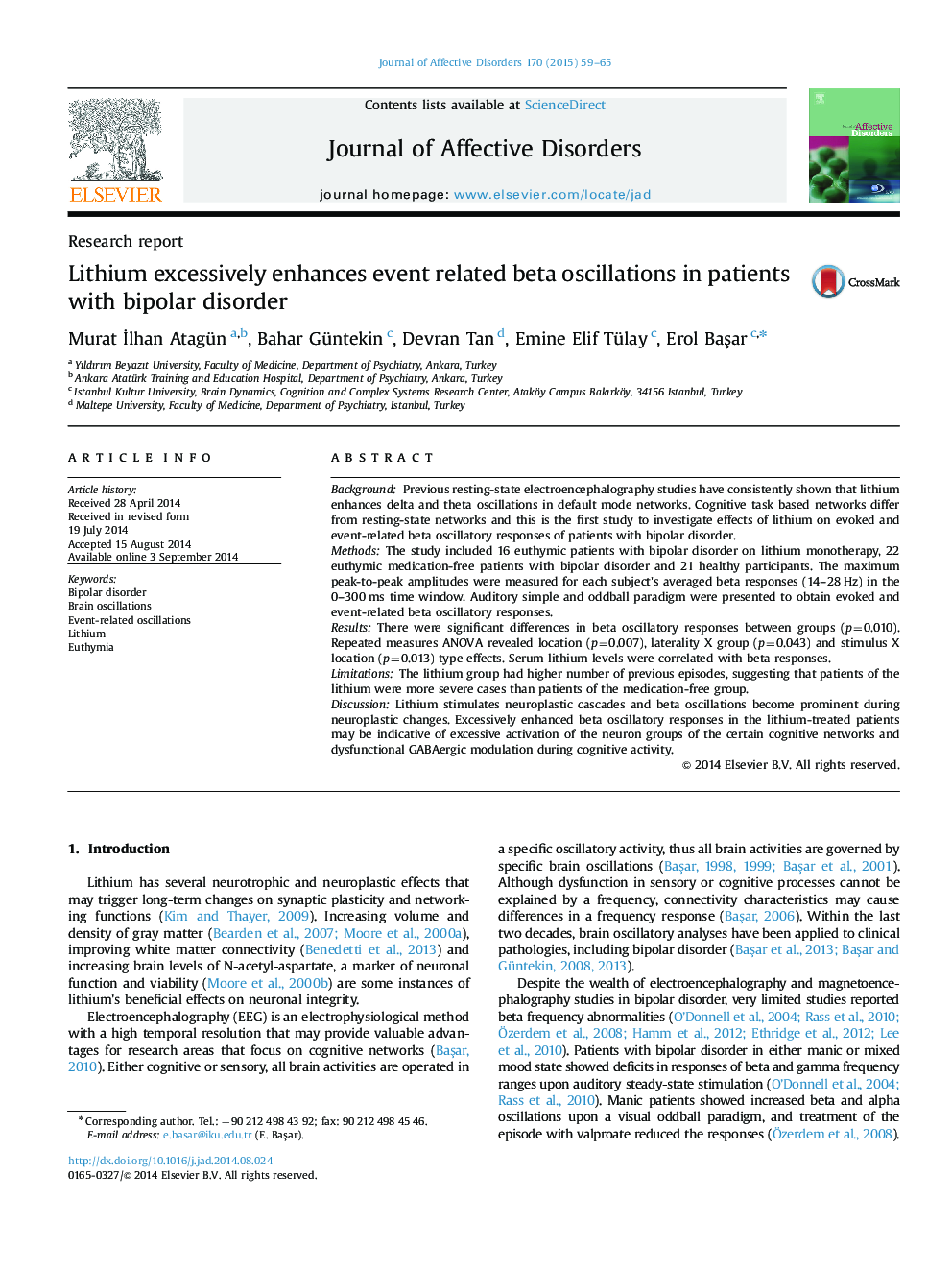| Article ID | Journal | Published Year | Pages | File Type |
|---|---|---|---|---|
| 6232144 | Journal of Affective Disorders | 2015 | 7 Pages |
BackgroundPrevious resting-state electroencephalography studies have consistently shown that lithium enhances delta and theta oscillations in default mode networks. Cognitive task based networks differ from resting-state networks and this is the first study to investigate effects of lithium on evoked and event-related beta oscillatory responses of patients with bipolar disorder.MethodsThe study included 16 euthymic patients with bipolar disorder on lithium monotherapy, 22 euthymic medication-free patients with bipolar disorder and 21 healthy participants. The maximum peak-to-peak amplitudes were measured for each subject׳s averaged beta responses (14-28 Hz) in the 0-300 ms time window. Auditory simple and oddball paradigm were presented to obtain evoked and event-related beta oscillatory responses.ResultsThere were significant differences in beta oscillatory responses between groups (p=0.010). Repeated measures ANOVA revealed location (p=0.007), laterality X group (p=0.043) and stimulus X location (p=0.013) type effects. Serum lithium levels were correlated with beta responses.LimitationsThe lithium group had higher number of previous episodes, suggesting that patients of the lithium were more severe cases than patients of the medication-free group.DiscussionLithium stimulates neuroplastic cascades and beta oscillations become prominent during neuroplastic changes. Excessively enhanced beta oscillatory responses in the lithium-treated patients may be indicative of excessive activation of the neuron groups of the certain cognitive networks and dysfunctional GABAergic modulation during cognitive activity.
